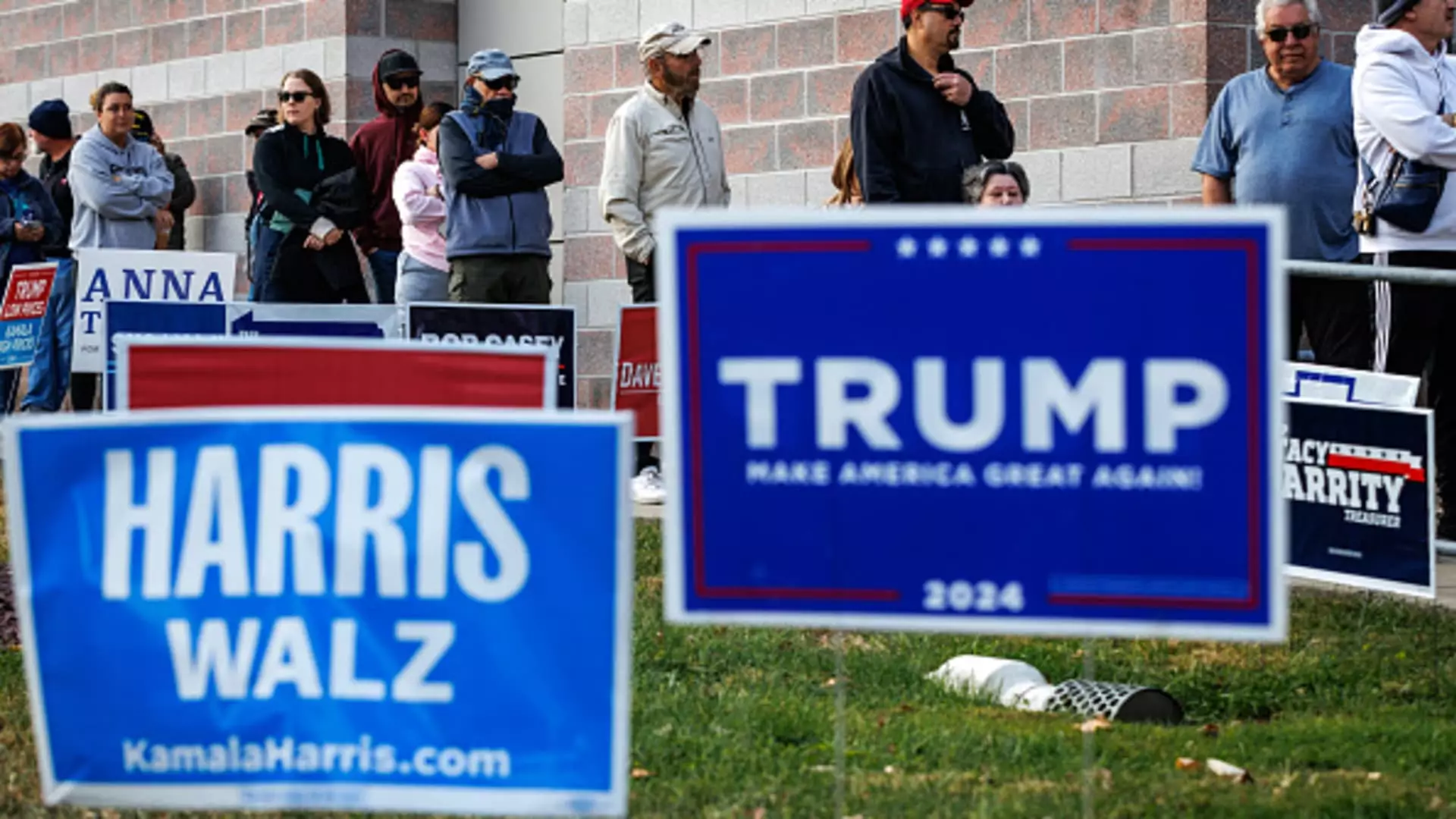The political landscape is often shaped by the perspectives of key demographic groups, and one such group of increasing significance in American elections is older voters, particularly those aged 50 and over. A recent poll commissioned by the AARP sheds light on this cohort’s sentiments, revealing substantial economic apprehensions that influenced their voting behaviors. Through unearthing the worries and preferences of these voters, it becomes clear that their economic situations and priorities play a decisive role in shaping electoral outcomes.
Responding to the pivotal question, “Are you better off today than you were four years ago?” a staggering 47% of voters aged 50 and above reported feeling “worse off” today. This sentiment was echoed even more strongly among swing voters in this age category, with 55% expressing a similar discontent. Such statistics suggest that economic discontent may have played a critical role in determining the results in competitive Congressional districts, where President-elect Donald Trump managed to secure a narrow victory among older voters—mirroring his overall national success.
Further dissecting these trends, the data indicates that voters between the ages of 50 and 64 leaned more favorably towards Trump, granting him a 7-point margin among their votes. However, a notable divergence appears with voters aged 65 and over, where Vice President Kamala Harris edged out Trump by two points. This shift underscores how economic perceptions can influence distinct segments within the older voter demographic, effectively shaping electoral dynamics.
Financial Concerns: The Dominant Theme
In examining the financial concerns of older voters, an AARP survey conducted in June found that a remarkable 62% of respondents within this age bracket expressed anxiety about their financial circumstances. Not only is this indicative of a broader lack of economic security, but it also highlights the significance these voters place on financial stability as paramount when deciding whom to support in elections. On Election Day, these concerns persisted, with food prices emerging as the top worry for 39% of older voters, closely followed by apprehensions regarding healthcare and prescription drug costs.
The overwhelming prioritization of personal economic issues indicates that voters aged 50 and over are substantially motivated by considerations of inflation, job security, and the sustainability of Social Security. In fact, 55% of this demographic affirmed that these issues influenced their voting choices more than any other category of concern. Such financial preoccupations suggest that addressing economic stability could become a crucial focal point in future electoral negotiations.
Despite leaning Republican on many economic concerns, older voters still show a tendency to favor Democrats when it comes to Social Security, albeit by a narrow margin of two points. The traditionally stronger Democratic position on Social Security raises the stakes for both parties as they vie for dominance on this pressing issue. Given that Social Security serves as a primary income source for approximately 42% of individuals aged 65 and older—funding at least half of their livelihoods—it is a vital element to consider in political discussions.
Moreover, looming fears surrounding the insolvency of the Social Security trust fund, projected to run dry by 2033, compound these concerns. Economic analysts highlight an urgent need for legislative action to ensure the program’s sustainability, pointing to an impending “action-forcing event” compelling Congress to make significant decisions soon. The gravity of possible entitlement cuts or adjustments to benefits will likely continue to dominate conversations among older voters, irrespective of party lines.
Broader Implications for Future Policies
In addition to financial issues, older voters have also expressed a keen interest in policies relating to healthcare, specifically supporting Medicare’s ability to negotiate prescription drug prices and promote aging in place. Such preferences highlight a potential for comprehensive policy agendas that focus not only on immediate economic relief but also on long-term systemic reforms.
Overall, these economic concerns signify an opportunity for political leaders to engage older voters through actionable, fiscally responsible policies that address their pressing economic issues. Future elections will undeniably be swayed by how well parties cultivate support by prioritizing the economic needs, security, and values of the older demographic. As this voting bloc grows and evolves, the attention they demand regarding financial and social security will only intensify in the political arena.

Leave a Reply